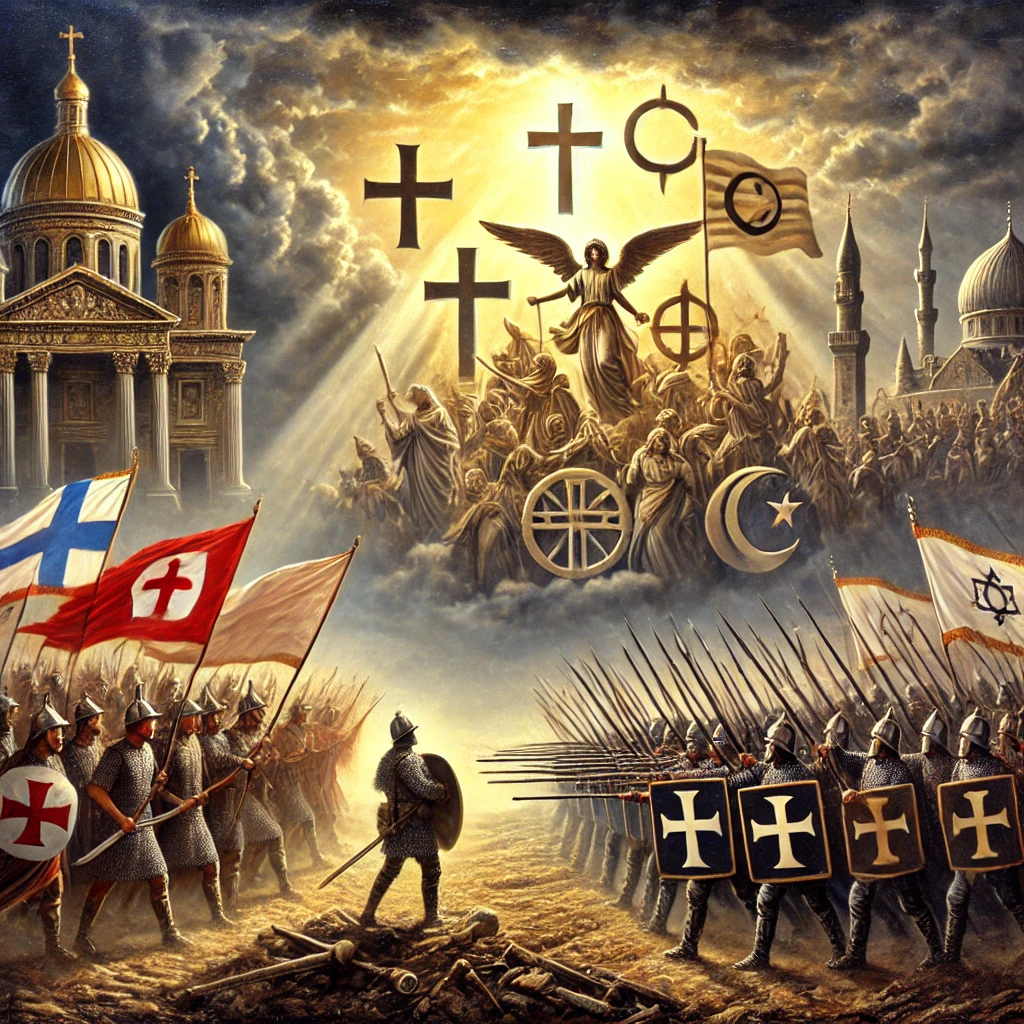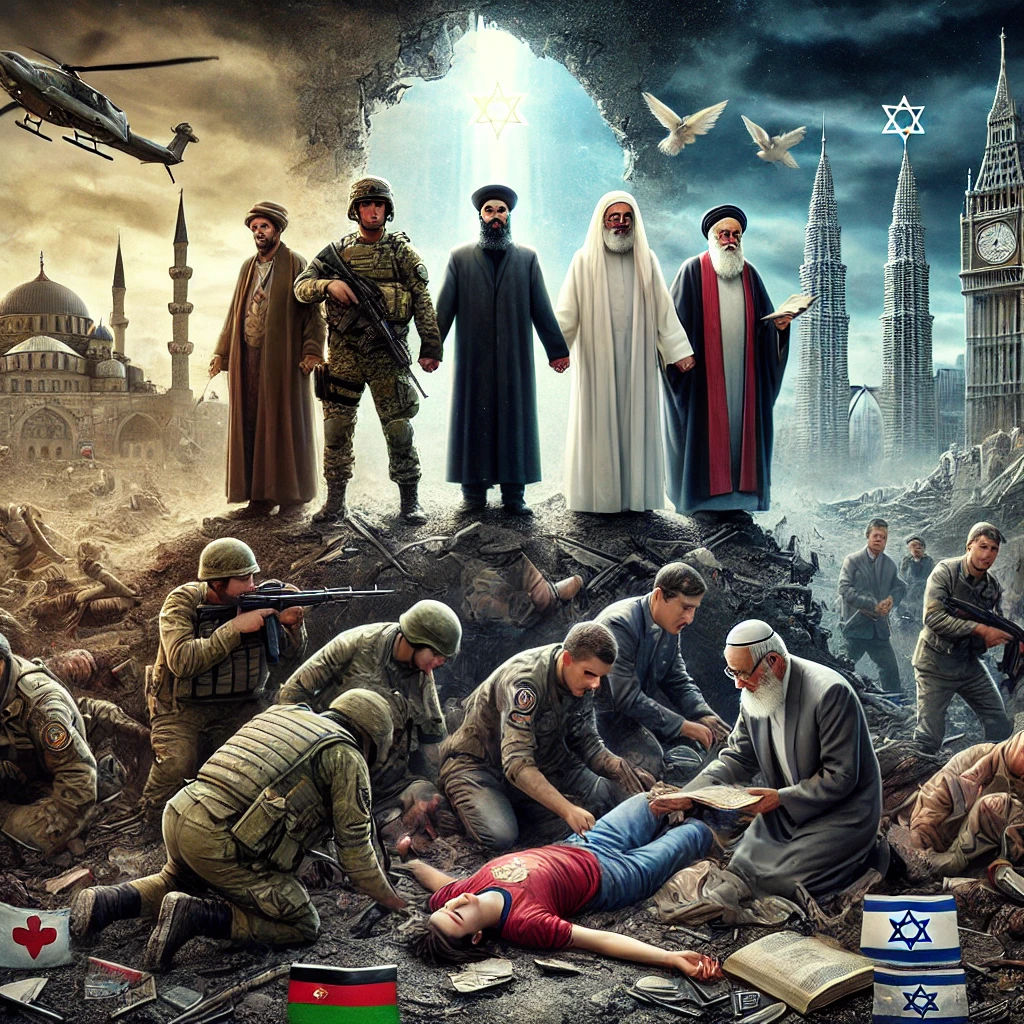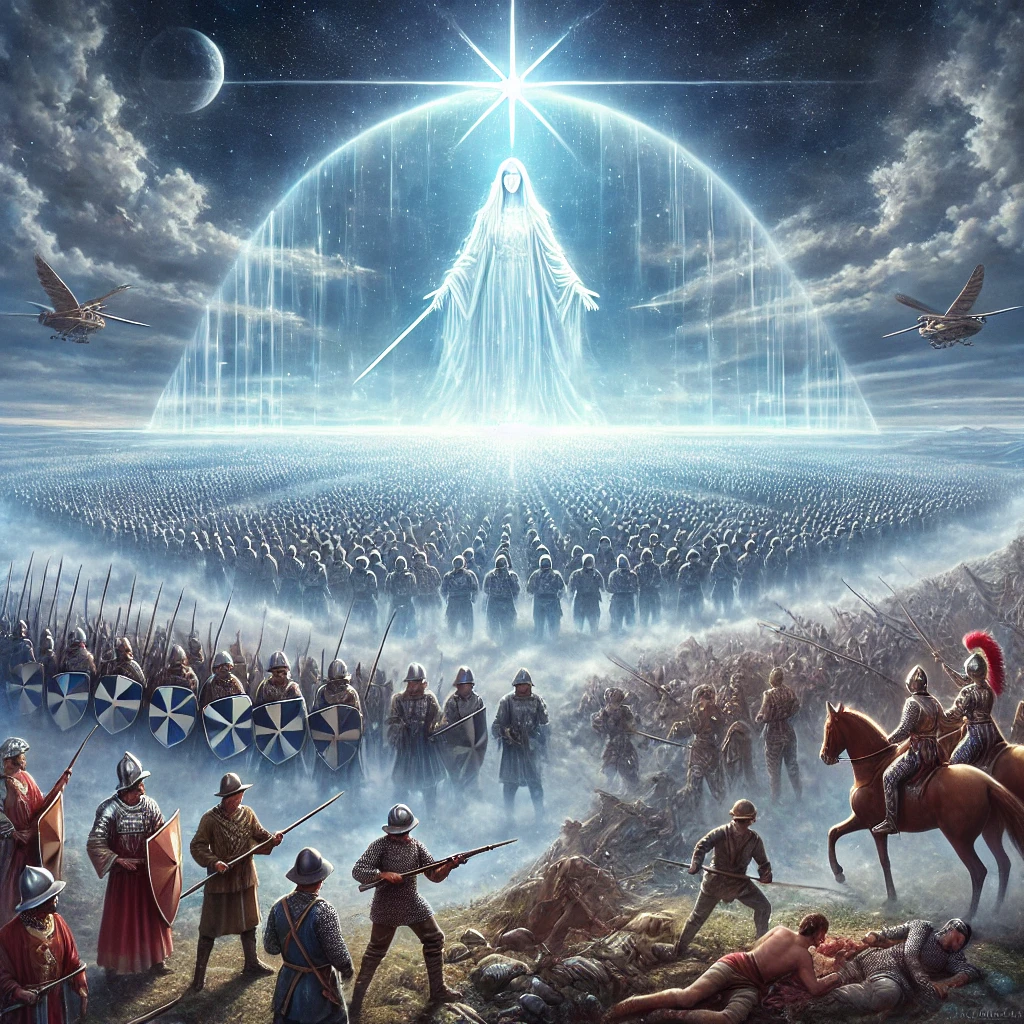Throughout history, war and religion have been deeply intertwined, often shaping the course of civilizations. The relationship between God and war is complex, as religious beliefs have both inspired and restrained human conflict. While faith is often seen as a source of peace, it has also been invoked to justify wars, creating a paradox that has persisted throughout time.
The Role of Religion in War
Many of history’s greatest conflicts have been fought in the name of God. The Crusades, the Thirty Years’ War, and the Islamic conquests all had religious motivations at their core. In these instances, divine justification was used to rally armies, fortify morale, and provide a moral framework for battle. Religious leaders have blessed armies, promised divine favor, and framed wars as holy missions.
However, religion has also served as a force for peace. Many faith traditions advocate nonviolence and reconciliation, emphasizing the sanctity of human life. Figures like Mahatma Gandhi, Martin Luther King Jr., and the Dalai Lama have used their faith to promote peace and resist violence through nonviolent means.

The Theological Debate on War
Religious scholars and theologians have long debated the moral implications of war. The concept of “Just War” theory, developed by Christian thinkers like Augustine and Thomas Aquinas, seeks to provide ethical guidelines for engaging in conflict. According to this doctrine, war is only justified under certain conditions, such as self-defense or protecting the innocent. Similar principles can be found in Islamic, Hindu, and Buddhist traditions, where war is sometimes deemed necessary but only within strict moral constraints.
On the other hand, pacifism remains a significant religious stance. Many Christian sects, such as the Quakers and Mennonites, advocate complete nonviolence, believing that war contradicts the teachings of Jesus Christ. In Buddhism, the principle of ahimsa (non-harming) discourages all forms of violence, even in self-defence.
Modern Conflicts and the Role of Faith
In contemporary times, religious tensions continue to contribute to conflicts worldwide. From sectarian violence in the Middle East to ethnic-religious clashes in Africa and Asia, faith remains a powerful force in war. However, religion is not always the root cause; rather, it is often intertwined with political, economic, and cultural factors. In many cases, leaders exploit religious sentiment to justify power struggles and territorial disputes.
Despite this, interfaith dialogue and religious diplomacy have played a crucial role in peace-building efforts. Organizations like the World Council of Churches, interfaith alliances, and religious leaders have worked to mediate conflicts, promote understanding, and foster reconciliation.

Conclusion
The relationship between God and war is one of contradiction and complexity. While religion has been used to justify violence, it has also been a source of peace, compassion, and reconciliation. Faith can inspire both warriors and peacemakers, depending on how it is interpreted and applied. As humanity continues to grapple with war and peace, the role of religion remains a crucial element in shaping our moral and ethical perspectives on conflict. In the end, the challenge lies in aligning spiritual beliefs with a commitment to peace, ensuring that faith serves as a bridge rather than a battleground.
Prayer for Help and Healing During Conflict
O Divine Creator,
In the midst of turmoil and strife, we turn to You, seeking Your mercy and guidance.
Our hearts are heavy with sorrow, and our spirits are weary from the weight of conflict.
Bring Your healing touch upon those who suffer—the wounded, the displaced, and the grieving.
Grant wisdom to leaders, that they may choose the path of peace over the road of destruction.
Soften hardened hearts, that enemies may see each other as brothers and sisters,
Not as adversaries, but as fellow souls longing for safety and love.
Shield the innocent from harm, protect those who strive to do good,
And strengthen the hands that bring aid, comfort, and hope.
May Your light pierce through the darkness of war,
And may Your love restore what hatred seeks to destroy.
O God of all nations, all peoples, and all faiths,
Let peace be sown where there is hatred,
Let unity rise where there is division,
And let healing flow where there is pain.
Amen.
Have More Questions?
If you have any more questions about God’s forgiveness or how to deepen your relationship with Him, feel free to ask in the comments section below. Our community is here to support and encourage you on your faith journey. No question is too big or too small—let’s grow in understanding together!
Join Our Newsletter
Would you like more insights into God’s love, forgiveness, and practical ways to live out your faith? Join our newsletter! You’ll receive weekly encouragement, Bible-based wisdom, and resources to help you grow spiritually. Sign up today and stay connected with us as we explore God’s Word together.
